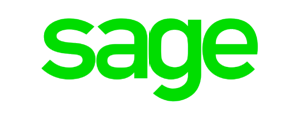
Over 80% of UK adults have at least one Direct Debit and it’s now the preferred payment method for more than half of the population…
As a consumer, maybe you use it to pay your energy bills, gym membership or car insurance.
You’ll be familiar with its convenience for managing recurring payments compared to cards, cheques, cash or Standing Orders.
You have the reassurance that the correct amount will leave your account on the correct day, simplifying managing your budget and personal cashflow.
As a business owner, it makes sense to replicate that ease and financial peace of mind in your professional life. Direct Debit will bring transformational benefits to your customers, your staff and your bottom line.
How? Here we’ll answer all your questions from “What is Direct Debit?” to “How do bureaux work?”. We’ll decipher the jargon and explore how easy it is to embrace the power of this incredibly popular payment method.
What is Direct Debit?
Direct Debit is a simple, reliable way to electronically transfer funds between UK banks.
Operated by Bacs, these payments are fully automated to simplify moving money from one account to another on a regular basis. In 2017, Bacs processed 4.2 billion Direct Debit transactions worth £1.3 trillion.
For collecting membership fees, monthly payment instalments or service charges, Direct Debit offers businesses and organisations an efficient, streamlined option to manage their accounting.
Direct Debit vs. the Alternatives
If you’re considering introducing Direct Debit as a payment option for your clients, let’s shine a light on the limitations of the methods you could currently be using.
Cash has obvious pros and cons: it’s convenient for customers to pay in person with notes and coins and you immediately know that a bill has been paid. But handling large amounts of cash within a business poses a security and cashflow risk with zero recompense if money goes astray or is stolen.
Cheques are fast becoming outdated and accepting them creates unnecessary admin work for your team along with delays in getting paid while they clear.
Debit and credit cards could work well as you get instant funds, but think about your customer: isn’t there a more convenient way for them to pay you regularly? One that doesn’t involve remembering the payment is due and then having to log on or make a call to complete it?
You may think that Standing Orders fill this gap. Perhaps you’re currently relying on them to accept recurring payments. But you may also think that the frustration caused by unexpected bounces and cancellations is impacting too heavily on your business.
The alternative to this traditional form of automated payment is Direct Debit: a flexible, reliable and secure way to revolutionise the way you receive money.
The Difference Between Standing Order and Direct Debit
While both Standing Orders and Direct Debits facilitate money being transferred automatically from your customer’s bank account to yours on a set date, their similarities end there:
- A Standing Order is an instruction from a customer to their bank to pay a fixed amount to you on a regular basis. Any changes to the amount, frequency or date of collection must be arranged by your customer with their bank.
- A Direct Debit is an instruction from a customer to their bank that authorises you to collect money from their account. With a Direct Debit, when the payment amount, frequency or payment date changes, you can collect the new amount on the date of your choosing. The customer doesn’t need to authorise this, they simply need to be informed in advance.
This means that with Direct Debit, the ball is in your court. You adapt the payment to suit your business needs, provided you give your customers advance notice, putting you in complete control.
With Standing Orders, the customer is in charge. They can cancel or change a Standing Order without informing you: you’ll only realise this when the payment doesn’t materialise. This could take a month or longer, depending on the payment frequency, jeopardising cashflow and causing unnecessary uncertainty.
When a Direct Debit is cancelled, you’ll be notified immediately so you can take prompt, professional action and get the money in the bank swiftly.
When a Standing Order is cancelled, you’ll be temporarily left in the dark and out of pocket.
Accessing Direct Debit for Business
Introducing Direct Debit to collect client fees is much more straightforward than you might think. And it’s all thanks to specialist bureaux such as FastPay who’ll give you more than just a helping hand.
In the past, Direct Debit wasn’t an option for smaller businesses. Only large corporations with substantial turnover could access a scheme through their bank, leaving sole traders and SMEs with restricted options when it came to collecting regular client payments.
While many of these large businesses manage their schemes in-house, this is a costly option requiring a significant, and often prohibitive, investment in set-up, staff and software fees.
Now, Direct Debit is open to businesses big and small. Bureaux act as managers and facilitators, providing a much more cost-effective way to access wide-reaching benefits.
Fees vary depending on the bureau you choose, the service you use and the number of collections you make. As a guide, FastPay offers a transparent and competitive pricing structure with prices per Direct Debit processed starting at just 3p for the Bureau Service and from 10p for its Managed Service customers.
All bureaux are approved by Bacs to carry out collections on your behalf. Each one has gone through a careful vetting process before being authorised and are closely monitored by the banking industry. In addition, the efficiency and security of Direct Debit is monitored and protected by your own bank or building society.
FastPay, for example, will take care of everything for you from providing branded forms called mandates for your customers to complete, to daily reports of your account’s activity which keep you fully up-to-date.
For a small set-up fee and low transaction charges, they’ll take away the hassle of managing multiple payment methods, replacing it with one straightforward way to collect fees.
Their professional service will help you streamline your systems and stabilise your cashflow, as well as freeing up time for your finance team.
Choosing your Ideal Bureau
Once you’ve decided to partner with a Direct Debit provider, you need to assess which one will best meet your unique business needs. Asking yourself the following questions will assist with your research:
- Can you read about their trading history, credentials and reputation?
- Do they offer initial advice about which service is right for you?
- Do they pledge to provide exceptional customer service?
- How much are their set-up fees and ongoing costs?
- How quickly can you be up and running?
- What level of ongoing technical support do they include?
- What reporting processes do they use?
- Can you integrate your software with theirs?
- Can they provide professional documentation including your business’ branding?
Chat to your preferred bureau about the services they offer and how they manage the intricacies of the process. You’ll be working closely with them so ensuring they’re a good business fit, and can answer all your questions comprehensively, is essential.
How Direct Debit Works
Choose A Service
A Direct Debit bureau usually offers two options: a bureau service for corporate businesses with their own Service User Number from a bank (see more about SUNs below) and a managed service for SMEs, charities, partnerships and organisations who can’t get their own SUN.
FastPay will be able to advise you on which will suit your requirements.
Get a Service User Number
If you use the Managed Service, you’ll be allocated a unique Service User Number (SUN). This is a code given to each organisation which collects money via Direct Debit.
Bacs uses SUNs as a form of ID to record all corresponding transactions. It’s also used by banks to look up the name of each company so they can be included on the payers’ bank statements.
FastPay use unique SUNs for each Managed Service client, meaning that your business’ name and logo, rather than the impersonal name of your bureau, will appear on all documents. They can also personalise your paperwork to consistently reflect your brand.
Once in possession of your SUN you’ll be able to start the collection process straightaway. With FastPay, you can be up and running within just 24 hours of signing up.
Collect Direct Debit Instructions
Before money starts to flow into your account, you need to request a signed Direct Debit Instruction (DDI) from each of your clients. These are simple to complete either online, over the phone or on a paper mandate and give you authorisation to collect payments from their accounts.
If you’re unclear what information you need to get, FastPay can guide you through the process and supply branded Bacs-approved web forms, phone scripts and paper mandates to make the job even easier.
Once you’ve passed on your customers’ details, your bureau will manage the submission of all payment data to Bacs and the money will arrive in your account as soon as it’s cleared.
Your customers will soon be enjoying peace of mind, convenience, flexibility and control over their budget: a more efficient service for them and you that will boost loyalty and your business’ reputation.
Receive the Money

With Direct Debit, you have the added bonus of receiving regular reports to keep you up-to-speed with every transaction. A daily email will list all successful payments alongside any failed or cancelled Direct Debits.
Any problematic transaction will be highlighted with an Automated Return of Unpaid Direct Debits Service (ARUDD) notification from Bacs which includes one of 12 reason codes.
There are two codes which appear most frequently: “Refer to Payer” is when a bank cannot pay the Direct Debit, usually due to insufficient funds in the account. And “Instruction cancelled” is when either your customer or their bank has cancelled the arrangement.
Others range from the self-explanatory “Account closed” to “Advance notice disputed” when the payer disputes the time, amount or frequency of the collection.
Armed with this detailed information as well as advice from your bureau, you can quickly take the most appropriate action to resolve any issues. Being able to tailor your client conversations empowers you to deliver great customer service, limit service disruption and crystallise your cashflow.
A failed Direct Debit can be recharged within days without any action required by your customer, provided they have adequate funds in their account.
And a cancelled Direct Debit can either be reinstated by you with your customer’s consent or by your customer through their bank.
When it comes to successful payments, exactly when you see the money in your account depends on which service you use.
For Managed Service clients, the amount will be credited to a Client Trust Account held in your name by your bureau. Once these funds have cleared, which usually takes around three days, the money will be transferred into your account.
For Bureau Service clients, Bacs will directly transfer the money from your customer’s bank account into your business account on the same day.
The Direct Debit Guarantee
The customer service-boosting benefits of Direct Debit don’t end there. Clients will be protected by the Direct Debit Guarantee and its unique set of safeguards.
It offers unrivalled security levels when compared to other forms of payment, making Direct Debit the safest payment method in the UK.
The wording of the Direct Debit Guarantee is:
- The Guarantee is offered by all banks and building societies that accept instructions to pay Direct Debits
- If there are any changes to the amount, date or frequency of your Direct Debit the organisation will notify you (normally 10 working days) in advance of your account being debited or as otherwise agreed. If you request the organisation to collect a payment, confirmation of the amount and date will be given to you at the time of the request
- If an error is made in the payment of your Direct Debit, by the organisation or your bank or building society, you are entitled to a full and immediate refund of the amount paid from your bank or building society
-
- If you receive a refund you are not entitled to, you must pay it back when the organisation asks you to
- You can cancel a Direct Debit at any time by simply contacting your bank or building society. Written confirmation may be required. Please also notify the organisation.
This explanation is included on all DDIs so your customers will be reassured of its security the second that they sign up with you.
Integrate Your Systems
Whether or not your accounting system is digitally optimised, signing up to a Direct Debit bureau gives you the opportunity to fully embrace transformational tech.
FastPay can facilitate the integration of their systems with yours using a unique API. And if you use Xero, you can also integrate your Direct Debit scheme with this accounting and bookkeeping software.
Both these solutions give you a reliable, real-time overview of your financial comings and goings, increasing transparency, reducing admin time and improving cashflow efficiency.
So, why Direct Debit?
Let’s take a look at the stats…
Direct Debit is a reliable, secure and convenient way to automate the collection of regular client payments.
It gives you freedom: the freedom to focus on building your business instead of chasing payments, undertaking time-consuming reconciliation and re-calculating cashflow forecasts. The freedom to speak to your clients about your service and products, not about unpaid invoices and out-of-date credit cards. The freedom to plan your financial future with confidence and certainty.
No longer will you be wondering if a cheque will bounce, endlessly checking bank statements to see if a payment has been made or taking phone calls to process card payments.
While everything is taken care of by your bureau, your business will benefit substantially and your customers will notice the difference.
Reassured that their fees are being paid accurately and on time, and that any problems will be resolved in a professional and swift manner, their trust in your brand and your people will soar.
As their loyalty grows, they’ll become advocates for your business, spreading the word that dealing with you is easy, convenient and technologically up-to-date.
The result? Happy customers, predictable cashflow and the opportunity to expand your successful business.









